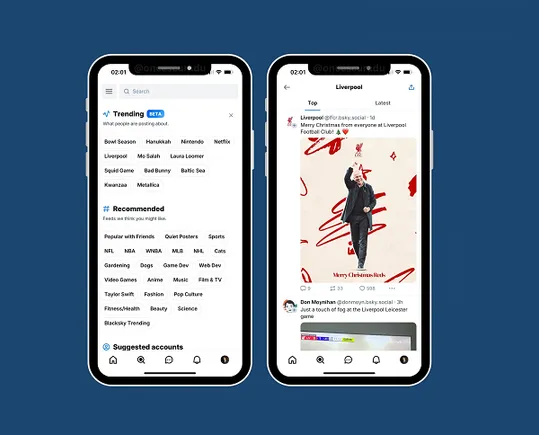Medicare, the federal health insurance program that focuses on providing coverage for 65-year-olds or older, as well as certain younger individuals with specific disabilities, plays a vital role in promoting overall health and well-being. Medicare Eye Exams Eyeglasses
However, navigating through Medicare coverage for vision-related services such as eye exams and eyeglasses can be intricate. In this article, we will explore and provide precise information on what Medicare includes with regard to eye exams and eyeglasses, aiming to deliver accurate and informative knowledge.
Does Medicare Cover Eye Exams and Eyeglasses?

When it comes to eye exams and eyeglasses, the coverage provided by Medicare is quite limited. Currently, Medicare only offers coverage for eye exams in situations such as when diagnostic tests are required for specific conditions or if there is a high risk of developing eye diseases like glaucoma. Furthermore, Medicare will cover the costs of eye exams before and after cataract surgery; however, it does not include the expenses of purchasing eyeglasses or contact lenses. If you need eye exams or new eyeglasses, you will likely have to bear the cost of these services.
Medicare Part B Coverage for Eye Exams
Medicare Part B, a component of Original Medicare, offers coverage for medical services and preventive care, including eye examinations. Beneficiaries at risk of developing eye diseases like glaucoma or age-related macular degeneration can avail themselves of the yearly eye exam provided by Medicare Part B. Individuals with diabetes or those with a family history of eye conditions that increase their vulnerability to vision issues fall under the category of high-risk individuals.
Medicare Part B also provides coverage for screenings of diabetic retinopathy for beneficiaries who have diabetes. Diabetic retinopathy is a complication of diabetes that affects the blood vessels in the retina and can cause vision loss if not treated. Because of this, Medicare understands the importance of screenings to identify and manage diabetic retinopathy in its early stages, helping to prevent serious vision problems or blindness.
Furthermore, Medicare Part B offers coverage for eye exams when they are medically necessary. These exams may be covered when a beneficiary experiences vision changes or symptoms related to eye diseases or conditions requiring immediate evaluation and treatment. By providing coverage for these exams under specific circumstances, Medicare aims to address urgent eye health concerns promptly and ensure beneficiaries receive the required medical care.
Please be aware that Medicare Part B does not cover routine eye care, including eyeglasses and regular refractions. It’s important for beneficiaries to thoroughly review their Medicare coverage and discuss with their eye care providers to understand the scope of their eye-related benefits and any potential out-of-pocket expenses. Moreover, it’s worth noting that Medicare Advantage plans provided by insurance companies approved by Medicare might offer additional coverage options for eye care beyond what Original Medicare provides.
Medicare Part B Coverage for Eyeglasses

Although Medicare Part B does not cover eyeglasses, there are certain situations where Medicare may cover the cost of eyeglasses;
#1.Post-Cataract Surgery
If you undergo cataract surgery and receive an intraocular lens implant, Medicare Part B will cover either a pair of prescription eyeglasses or a set of contact lenses. The prescription must be provided within a timeframe to be eligible for coverage.
#2.Corrective Lenses for Aphakia
For beneficiaries who have undergone cataract surgery resulting in aphakia (no lens implant), Medicare Part B may cover one pair of eyeglasses or contact lenses to assist with vision correction.
Medicare Advantage (Part C) and Additional Coverage
Medicare Advantage or Part C plans allow beneficiaries to receive their Medicare benefits. These plans are offered by insurance companies that Medicare has approved. When individuals enroll in a Medicare Advantage plan, they still receive coverage for the services provided by Original Medicare, including Part A (hospital insurance) and Part B (medical insurance). However, the administration of this coverage is handled by an insurer, and the plan may have its network of healthcare providers.
One notable advantage of Medicare Advantage plans is that they often offer benefits beyond what Original Medicare provides. The specific additional benefits can vary from one plan to another. It may also encompass coverage for services not typically included under Original Medicare. For instance, particular Medicare Advantage plans may cover routine eye exams and eyeglasses or contact lenses.
Conclusion
Medicare provides vital health insurance coverage for millions of eligible individuals residing in the United States. While it offers eye-related services like annual eye exams for high-risk individuals and eyeglasses after cataract surgery, routine eyeglasses and standard eye exams are generally not covered by Original Medicare (Part A and Part B). However, beneficiaries can explore Medicare Advantage plans that might provide vision benefits. It’s essential for individuals to carefully review their coverage options and seek guidance from Medicare experts or insurance professionals to make well-informed decisions.
Featured image: Caique Nascimento/Unsplash
For the latest in fashion, lifestyle, and culture, follow us on Instagram @StyleRave_
This is a Style Rave original content exclusively created for our readers. If reproduced, distributed, transmitted, cached, or otherwise used by any other publishing house or blogs, such use should provide a direct link to this source article. Use of and/or registration on any portion of this site constitutes acceptance of our Terms & Conditions and Privacy Policy.
—Read Also




































































